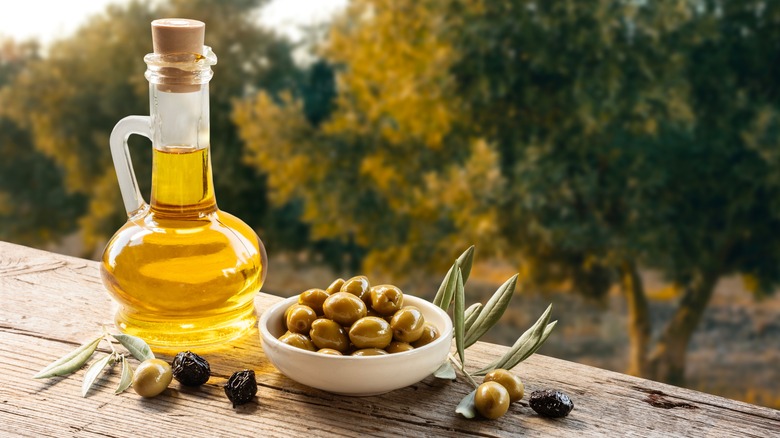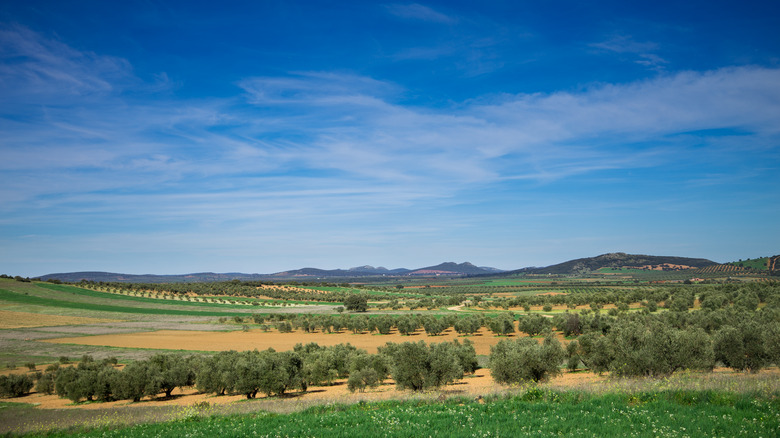The Country That Produces The Most Olive Oil In The World Isn't Italy
When picking a quality bottle of olive oil to dip your bread in – or using olive oil to cook your favorite dishes – visions of Italian olive groves and rolling countryside hills might come to mind. Yet, Italy isn't the only country that produces great tasting olive oil, nor does it produce the most olive oil in the world. Spain instead takes the number one spot, producing 766,400 tons of olive oil from 2023 to 2024 — more than double Italy's production at 288,900 tons. Following Italy are Turkey (210,000 tons), Tunisia (200,000 tons), Greece (195,000 tons), Portugal (150,000 tons), and Morocco (106,000 tons). Spain's olive oil is expected to rise by 48% in October 2024 as compared to the previous October, bringing the total production to 1.26 million tons.
Spain has been a top olive oil-producing country for many centuries, dating back to the 8th century B.C. Today, it has around 2.6 million hectares (or about 10,000 square miles) of land dedicated to growing olives, primarily located in the Andalusian region of the country.
Spain offers a diverse selection of olive oils
Not only does Spain produce the highest quantity of olive oil, but its diverse variety of olives and geographical climates result in a unique array of tasty olive oils.
The largest olive-oil producing region in Spain is Andalusia, located in the southernmost part of Spain near the Mediterranean Sea. This region is known for its warm, dry climate and mild winters, making it the ideal conditions for olive trees to thrive, as warm weather allows the olives to ripen faster and produce polyunsaturated fats. This gives the olives (and their oil) a richer, fruitier, and bolder taste. Catalonia, Extremadura, Castilla-La Mancha, and Aragon are other popular olive-oil producing regions in the country with similar climates; however, each region's olive oil has its own unique flavor profile due to the different varieties of olive. Fittingly, all kinds of olive oil are staples in traditional Spanish dishes from across the country.
The fertile soil and warm climate of Spain is also what sets its olive oil apart from other countries with cooler climates, such as Croatia or Northern Italy. In cooler temperatures, olive trees take much longer to grow, and the fruit takes longer to ripen, resulting in higher levels of oleic acid, creating a more stable oil with a delicate — yet complex — flavor. That said, while you should try olive oils from lots of regions, it's probably best to stick to single-sourced olive oils (oil coming from only one country per bottle).


